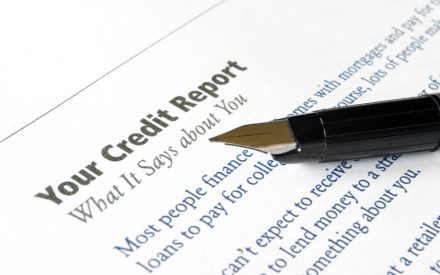The following websites offer more information about your credit report and related items:
The Annie E. Casey Foundation’s “Youth and Credit: Protecting the Credit of Youth in Foster Care” guide. A 2013 guide intended primary for anyone who is responsible for mentoring, supporting or working with youth or young adults in foster care. The report is user-friendly and readable, so others may also find it valuable.
AnnualCreditReport.com. The only truly free website for obtaining the free credit reports you are entitled to by law. Other websites may claim to offer free reports, scores, or monitoring, but these sites are unofficial and rarely if ever free. Unsolicited emails, pop-up ads, or phone calls offering free scores or reports are often scams.
Consumer Financial Protection Bureau (CFPB) Resources
Credit reports and scores question and answer page. The CFPB’s website allows users to search a growing database of common questions about credit scores and reports. Individuals can also submit new questions to the CFPB through the site.
April 2015 blog post on the increasing availability of free credit scores to consumers. Many credit card companies provide free credit scores to customers, and financial counseling agencies may now share credit scores with clients.
Submit a complaint to the CFPB. If you have a problem with a financial product or service, the CFPB will forward your complaint to the company and work to get a response.
Information about other circumstances when you can obtain a free credit report other than the three per year everybody is entitled to.
Access free CFPB publications about credit and other financial topics. You can download the materials as PDF’s or order free paper copies.
Key Dimensions and Processes in the U.S. Credit Reporting System (PDF)
The impact of differences between consumer- and creditor-purchased credit scores (PDF)
Disputing Errors
Errors should be disputed by contacting the credit bureau that provided the report and/or the company or person that provided the incorrect information to the credit bureau. Disputes must be filed with the credit bureau that provided the report, not through AnnualCreditReport.com. The credit report should contain information about how to dispute errors. More information specific to each bureau is available on their websites.
The Federal Reserve Consumer’s Guide to Credit Reports and Scores. The Federal Reserve’s Guide is designed in a Q+A format and answers common questions about credit reports and scores. The Guide can also be viewed and printed as a four-page PDF.
The Federal Trade Commission’s website on Credit and Loans. The FTC’s website offers in-depth information about credit reports and scores, including guidance on how to dispute errors and report fraudulent activity.
The FTC has another website about what to do if you believe you are the victim of identity theft or fraud.
OptOutPrescreen.com. Credit reporting agencies are allowed to provide your contact information to companies that may pre-approve you for credit or insurance. These inquiries appear on your credit report but have no affect on your credit score. OptOutPrescreen.com allows you to opt out of these offers and provides more information.
Where to Get Help
Borrowers who have fallen behind on their payments or experienced other difficulties should talk to their creditors as soon as possible. Resources available to consumers include:
In Wisconsin, contact your local UW-Madison Division of Extension Educator.
Credit counseling. The National Foundation for Credit Counseling’s website lists local agencies that provide free or low-cost credit counseling.
Mortgage assistance. The 888-995-HOPE hotline (makinghomeaffordable.gov) offers free foreclosure assistance and housing counseling services.
The Consumer Financial Protection Bureau released a consumer advisory with information about how avoid credit repair service scams.

 Check Your Free Credit Report for Signs of Fraud and Identity Theft
Check Your Free Credit Report for Signs of Fraud and Identity Theft Security Freezes and Fraud Alerts
Security Freezes and Fraud Alerts Feeling invisible?
Feeling invisible?


